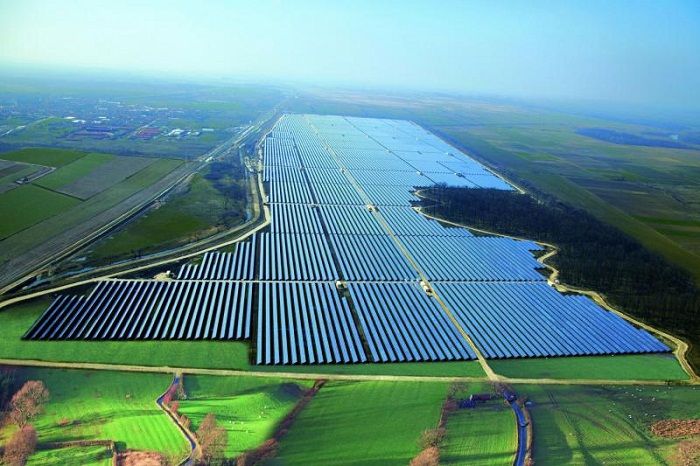There are no products in your shopping cart.
| 0 Items | £0.00 |


EGYPT has stepped up its ongoing campaign to become Africa's largest solar energy producer by taking out a $27.2m loan from the African Development Bank (AfDB) to build a new power plant at Kom Ombo along the River Nile.
Last year, Egypt added 581MW to its national solar power capacity, representing an almost fourfold increase compared with what it already had installed. Egypt now has 1,647MW of solar power and is engaged in an ongoing battle with South Africa to keep pace with the rest of the world when it comes to generating green energy.
Algeria, Morocco and Namibia are also investing heavily in green energy, although the continent's giant and largest economy Nigeria is lagging behind woefully. In a bid to consolidate its ongoing programme, the Egyptian government has taken out the loan to finance design, construct and operate a 200 MW photovoltaic solar power plant at Kom Ombo, in Upper Egypt on the River Nile.
When completed the project is expected to lower electricity costs for businesses and residences, as well as reduce greenhouse gas emissions and creating construction and other jobs. Its total cost is estimated at $156.4m. In addition to the AfDB financing, structured as a senior loan, the European Bank for Reconstruction and Development, the Green Climate Fund, the Arab Bank and the Opec Fund for International Development will contribute funding.
This plant, located 800 km south of Cairo, is owned by Acwa Power, a leading Saudi Arabian developer, investor and operator of power generation and desalinated-water plants worldwide. During the construction phase, a total of 800 jobs will be created.
Kevin Kariuki, AfDB's vice president for, power, energy, climate and green growth, said: “We are delighted to support this project that will deliver one of the lowest generation tariffs on the continent. This project supports Egypt’s energy transition and contributes towards the country’s achievement of its targeted 20% share of renewables by 2022.”
Egypt’s economy has continued to grow during the Covid-19 pandemic and its electricity demands are increasing at an average annual rate of 7%. By increasing Egypt’s installed power generation capacity from renewable sources, the plant is forecast to reduce greenhouse gas emissions more than 7m tCO2e equivalent over a 25-year period.
Under a regional scheme, Egypt’s electricity grid is linked to those of neighbours Libya and Sudan and the plant has the potential to greatly contribute to energy trading and electricity access across the region. This project aligns with Egypt’s national Integrated Sustainable Energy Strategy and the AfDB's New Deal on Energy for Africa, which aims to increase the share of renewable energy through innovative financing.
Malinne Blomberg, AfDB's deputy director-general for North Africa, said: "The newly approved transaction is a continuation of the bank’s long-standing partnership with the government of Egypt and its strong support for the country’s reform agenda. In addition to advancing the country’s green development, the Kom Ombo project is also contributing to the sustainability of a sector that is essential for Egypt’s competitiveness and industrial development.
"More immediately, the recovery from Covid-19 will benefit from an efficient and sustainable energy sector.” Egypt is one of the founding members of the African Development Bank Group and since starting lending operations in 1974, the bank has financed over 100 operations in Egypt across several sectors.